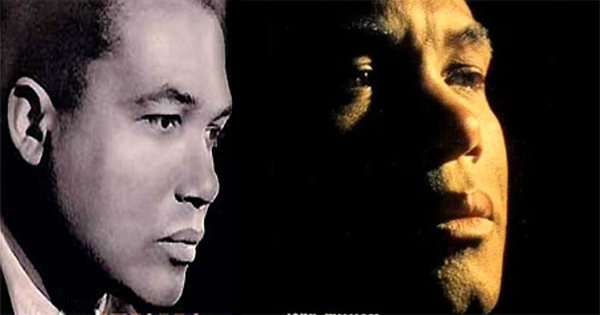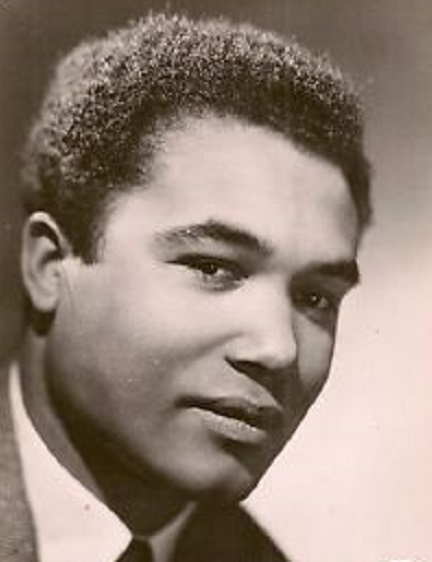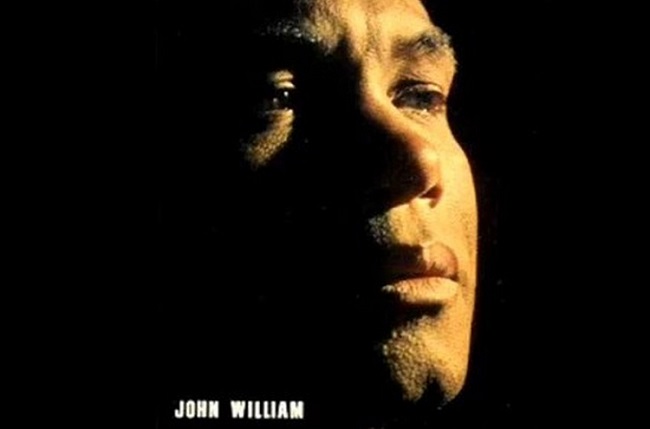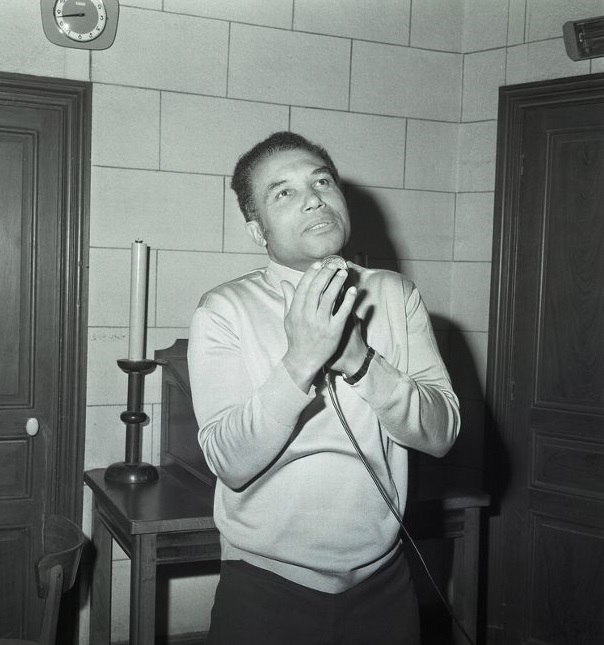
John William: Franco-Ivorian survivor of the Nazi concentration camps
 Ernest Armand Huss alias John William is a Franco-Ivorian singer who was deported at the age of 22 in the Neuengamme camp. He carries the registration number 31103. Worker for resistance, he was accused of sabotage in the factory Sagem in Montlucon. Indeed, on February 29, 1944, René Petot, a Sagem-resistant electrician, detonated four of these detectors. Despite torture, John William refuses to denounce his companion. He will be arrested and sent to Germany in March 1944.
Ernest Armand Huss alias John William is a Franco-Ivorian singer who was deported at the age of 22 in the Neuengamme camp. He carries the registration number 31103. Worker for resistance, he was accused of sabotage in the factory Sagem in Montlucon. Indeed, on February 29, 1944, René Petot, a Sagem-resistant electrician, detonated four of these detectors. Despite torture, John William refuses to denounce his companion. He will be arrested and sent to Germany in March 1944.
The hell of the Neuengamme concentration camp
John William says there were between 10 or 12 blacks in the Neuengamme camp. They were parked together. Winters were terrible and icy. A cold wind was blowing constantly. Many people of color died, because they were struggling to withstand these too changeable temperatures compared to their country of origin.
A few words from John William on his visit to the camp:
“I stayed 4 days and 5 nights in a wagon with a tiny opening up” “Every day in the camp the cart passed the dead, we weighed between 28 and 40 kilos.The Germans liked to humiliate us. hours in the cold, a kind of sadism, those who took the dead bodies to the cremation ovens were sacrificed in turn, the ovens smoked every day, the Germans reminded us that we were really nothing. “
“When we entered, we were numbered, like animals, the Germans had the right to life and death over us, and I wonder how the Germans could fight every day, every week, every month, every year. who did not do anything to them … all of this because of ideology, how could they keep up with what they were doing, they had to have their minds turned back by terrible propaganda, the Africans and I never got out of The Germans were too scared to go with Germans because they had the ideology of the superiority of the Germanic race, they were superior beings. “
John William worked as a precision toolmaker for forced labor until his release. The Germans were astounded by his skills and his know-how. They were not used to seeing a black person who could read and understand very technical plans. Thanks to his know-how, he was treated a little better. His religious faith helped him to hold and resist in the Neuengamme camp.
While these other companions were working in quarries to extract blocks of granite.

Faith and music as a way out
Camp life was very hard. William sang incessantly to comfort his deported comrades. Music is a revolution for him. He discovers that his voice is melodious and beautiful and decides to make it his vocation.
“I had never sung in my life and I did not know a song, and all of a sudden I had the Russian air of the Volga Boatmen in my head. for the first time the feeling of duplication: I was coming out of myself! I was not alone in being amazed by the power of this voice, mine. There was a long silence in the cell and my 11 friends , forgetting where we were, loudly applauded, they all predicted a singing career.
JOHN WILLIAM

Tormented by his forced labor, he was no longer able to work at the factory. When he was released, he decided to become a singer. He took singing lessons and chose the artist name John William.
A successful career
His career began around the 1950s. Many titles like ” « Si toi aussi tu m’abandonnes » pour le film Le train sifflera trois fois, Lawrence d’Arabie, Alamo, La chanson de Lara, Une île au soleil, Le Jour le plus long”, and many other songs have made John William’s success. He is recognized and praised all over the world.
In his autobiographical book, “Si toi aussi, tu m’abandonnes”, John William recounts the confinement and torture.
“We were all locked up in the same cell, we were going to spend restless nights there, because every morning, very good hours, the Gestapo came to pick up its victims for interrogations that we knew terrible where … for the platoon of When they passed our door, our hearts stopped beating, and only when we heard the sound of their footsteps were we sure we had a day off. One morning, it was my turn, they had not forgotten that I was one of the last to have worked on the trapped devices.I undergo a muscular interrogation.I do not want to describe the sadistic refinement. Nazi methods If I held, it was because of my faith It was a great help to me For nothing in the world, I would not have wanted to betray the ultimate handshake with my comrade I came out of this physically annihilated ordeal. “
JOHN WILLIAM (Si toi aussi, tu m’abandonnes)
In the documentary Blacks in the Nazi camps, Serge Bilé evokes the courageous story of the survivor of the Nazi camps John William.
On January 9, 2011, he died in Antibes at the age of 88. John William was knighted the Legion of Honor.













